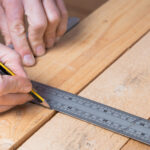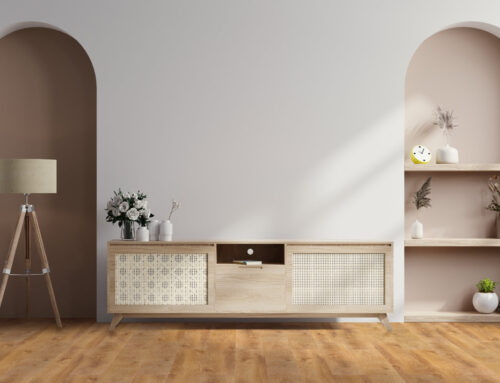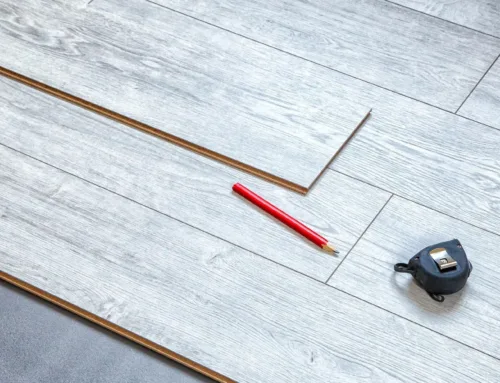When it comes to wood flooring, there are several options to consider. This article will explore the different types of hardwood flooring, highlighting their pros and cons. We’ll start with solid hardwood, then move on to prefinished hardwood, and finally, engineered hardwood. Each of these options is unique, despite all being made of wood.
Types of Hardwood Flooring
Solid Hardwood
- Description: Solid hardwood is a single piece of wood milled to size, typically 3/4″ thick.
- Advantages: This type of flooring is highly valued for its longevity, often lasting decades or even centuries. It can be sanded and refinished multiple times, making it easy to repair and maintain. Additionally, damaged boards can be replaced during refinishing for a seamless look.
- Environmental Impact: Solid hardwood is often considered the most environmentally friendly option as it involves fewer chemicals and less shipping if sourced locally.
Prefinished Hardwood
- Description: Prefinished hardwood is also 3/4″ thick solid hardwood, but it is finished at the factory with stain and finish. It usually features beveled edges.
- Advantages: The factory finish means the flooring is ready to install, saving time and effort. The bevels help create a smooth, flat surface, even if the subfloor is not perfectly even.
- Considerations: Since it comes prefinished, any damage to the surface may require more extensive repair or replacement of the affected boards.
Engineered Hardwood
- Description: Engineered hardwood consists of a hardwood veneer layer on top of a core made from different woods. The veneer can range from 1.2mm to 6mm thick, with 1-4mm being typical.
- Advantages: This type of flooring is more dimensionally stable, making it suitable for areas with higher moisture levels. The color and finish are applied at the factory, providing a wide range of options.
- Considerations: Lower-end versions may suffer from issues such as popping, checking, and delamination. The production process involves multiple materials, which can affect the quality and environmental impact.
Choosing the right hardwood flooring for your home depends on your priorities and preferences. All three options—solid hardwood, prefinished hardwood, and engineered hardwood—can be excellent choices if you opt for high-quality products. Solid hardwood is typically the most environmentally friendly, while engineered hardwood offers greater stability in moisture-prone areas. Prefinished hardwood provides convenience with its factory-applied finish. Regardless of your choice, investing in quality hardwood flooring will enhance the beauty and value of your home. If you are interested in learning more about these hardwoods give our locations a call and ask any questions you mighy have.
Visit Our Local Stores for Wholesale Hardwood Flooring:
Flooring Store Spokane
Flooring Store Boise
Flooring Store Atlanta
Author Profile
- I have worked in hardwood flooring for the last 8 years. Use to run a company of residential crews as well as a company with gym flooring. If you need floor installation or refinishing help, I should have an answer or at least get you in the right direction.
Latest entries
 FlooringJanuary 15, 2026Does New Hardwood Flooring Increase Your Home Value?
FlooringJanuary 15, 2026Does New Hardwood Flooring Increase Your Home Value? FlooringJanuary 14, 2026Can You Refinish Engineered Hardwood?
FlooringJanuary 14, 2026Can You Refinish Engineered Hardwood? FlooringJanuary 10, 2026What Wood Floor Color Do I Choose?
FlooringJanuary 10, 2026What Wood Floor Color Do I Choose? FlooringJanuary 9, 2026How To Prevent Hardwood Floor Moisture Problems?
FlooringJanuary 9, 2026How To Prevent Hardwood Floor Moisture Problems?




